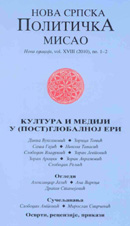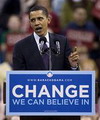| NSPM in English | |||
Another U.S. War? Obama Threatens China and Iran |
 |
 |
 |
| уторак, 02. фебруар 2010. | |
|
(Global Research, February 1, 2010)
Clinton said: “China will be under a lot of pressure to recognize the destabilizing effect that a nuclear-armed Iran would have, from which they receive a significant percentage of their oil supply.” The implication here is that China will be cut off from a major energy source if they do not support U.S. foreign policy — this, too, would equal an act of war. A more direct military provocation occurred later when Obama agreed to honor a Bush-era military pact with Taiwan, a small island that lies off the mainland coast of China, and is claimed by China as its own territory. Taiwan has been a U.S. client state ever since the defeated nationalist forces fled there from China in the aftermath of the 1949 revolution. Taiwan has remained a bastion of U.S. intrigue and anti-China agitation for the past six decades. Obama has recently upped the ante by approving a $6.4 billion arms sale to Taiwan, including: “... 60 Black Hawk helicopters, Patriot interceptor missiles, advanced Harpoon missiles that can be used against land or ship targets and two refurbished minesweepers.” (The New York Times, January 30, 2010). The same article quotes a Chinese government official who responded, accurately, by calling the arms sale “… a gross intervention intoChina’s internal affairs, [and] seriously endanger[ing] China’s national security…” In 1962, When Russia supplied missiles to Cuba, nearFlorida’s coast, the U.S. interpreted this to be an act of war. China responded harshly to the Taiwan arms deals, imposing “an unusually broad series of retaliatory measures… including sanctions against American companies that supply the weapon systems for the arms sales.” These U.S. arms manufacturers are giant corporations who have huge political influence in the Obama administration, and are likely to further push the U.S. government towards an even more aggressive response. Obama’s polices against China have been far more aggressive than Bush’s, making a farce out of his campaign promises of a more peaceful foreign policy. Obama’s same, deceitful approach is used inSouth America, where he promised “non-intervention” and then proceeded to build military bases in Colombia on Venezuela’s border, while giving a green light to the coup in Honduras. Hillary Clinton also threatened China about internet censorship last week, while Obama consciously provoked China by agreeing to talks with the Dalai Lama, who advocates the removal of Chinese influence from Tibet. Still fresh in the memories of both the U.S. and China is the recent trade flair up, when Obama imposed taxes on Chinese imports; and China responded with protectionist measures against U.S. companies, which brings us to the heart of the matter. The attitude of the U.S. government towards China has nothing to do with the Dalai Lama, internet censorship, or human rights. These excuses are used as diplomatic jabs in the framework of a larger, geopolitical brawl. Chinese corporations are expanding rapidly in the wake of the decline of the U.S. business class, and Obama is using a variety of measures to counteract this dynamic, with all roads leading to war. This grand chessboard of corporate and military maneuvering reached a dangerous standoff yesterday, with the U.S. military provoking Iran. The New York Times explains: “The Obama administration is accelerating the deployment of new defenses against possible Iranian missile attacks in the Persian Gulf, placing special ships [war ships] off the Iranian coast and antimissile systems in at least four [surrounding] Arab countries, according to administration and military officials.” (January 30, 2010). The same article mentions that U.S. General Petraeus admitted that “… the United States was now keeping Aegis cruisers on patrol in the Persian Gulf [Iran’s border] at all times. Those cruisers are equipped with advanced radar and antimissile systems designed to intercept medium-range missiles.” Iran knows full well that “antimissile systems” are perfectly capable of going on the offensive — their real purpose. Iran is completely surrounded by countries occupied by the U.S. military, whether it be the mass occupation in Iraq and Afghanistan, or the U.S. puppet states that house U.S. military bases in Arab nations. Contrary to the statements of President Obama, Iran is already well contained militarily. Iran’s government — however repressive it may be — has every right to defend itself in this context. It is possible that these aggressive U.S. actions will eventually force Iran’s government to act out militarily, giving the U.S. military the “defensive” excuse it’s been waiting for, so the tempers of the U.S. population can be cooled. A separate New York Times editorial outlines the basic agreement onIran shared by the Democrats and the Republicans. It says: “It is time for President Obama and other leaders to ratchet up the pressure with tougher sanctions.” And: “If the [UN] Security Council does not act quickly, then the United States and Europe must apply more pressure on their own [Bush's Iraq war strategy]. The Senate on Thursday approved a bill that would punish companies for exporting gasoline to Iran or helping Iran expand its own petroleum refining capability [another act of war]” (January 29, 2010). The U.S. anti-war movement must organize and mobilize to confront the plans of the Obama administration. Obama’s policies not only mirror Bush’s, but have the potential to be far more devastating, with the real possibility of creating a wider, regional war. Iran and China are far more militarily capable than puny Afghanistan or Iraq; the consequences of a war with either will cause countless more deaths. Bring All the Troops Home! U.S. Military Out of the Middle East! |
Остали чланци у рубрици
- Playing With Fire in Ukraine
- Kosovo as a res extra commercium and the alchemy of colonization
- The Balkans XX years after NATO aggression: the case of the Republic of Srpska – past, present and future
- Из архиве - Remarks Before the Foreign Affairs Committee of the European Parliament
- Dysfunction in the Balkans - Can the Post-Yugoslav Settlement Survive?
- Serbia’s latest would-be savior is a modernizer, a strongman - or both
- Why the Ukraine Crisis Is the West’s Fault
- The Ghosts of World War I Circle over Ukraine
- Nato's action plan in Ukraine is right out of Dr Strangelove
- Why Yanukovych Said No to Europe

.jpg)








 The possibility of yet another U.S. war became more real last week, when the Obama administration sharply confronted both China and Iran. The first aggressive act was performed by Obama’s Secretary of State, Hillary Clinton, who “warned” China that it must support serious economic sanctions against Iran (an act of war).
The possibility of yet another U.S. war became more real last week, when the Obama administration sharply confronted both China and Iran. The first aggressive act was performed by Obama’s Secretary of State, Hillary Clinton, who “warned” China that it must support serious economic sanctions against Iran (an act of war).











